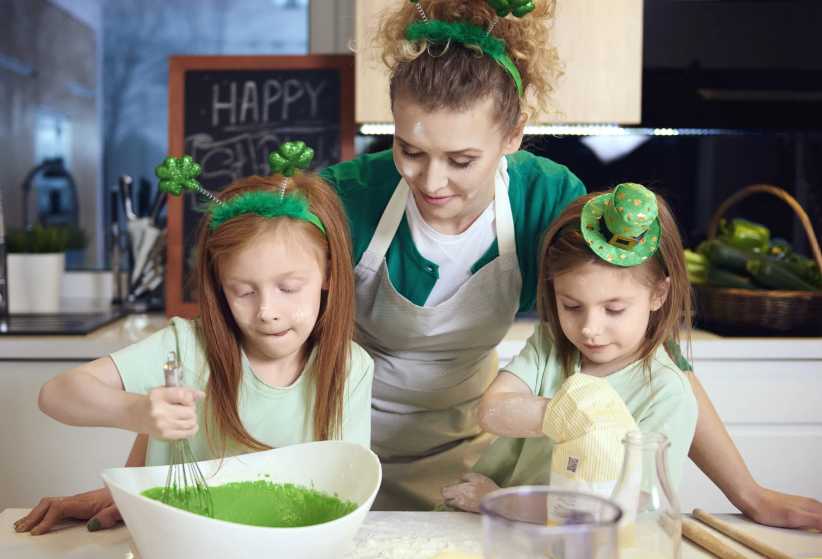Justin Noble, a certified nutrition coach, co-creator of the fun wellness book series for kids, “My Body Village,” and subject of last month’s “The great vitamin debate,” sat down with New York Parenting to discuss the importance of vitamins and balanced meals and the inspiration for his book series.
Tammy Scileppi: What are some helpful tips about multivitamins that parents should know?
Justin Noble: First and foremost, you should always do your best to meet all of your child’s nutrition requirements from food. Taking a multivitamin will never make up for having a poor diet. A diet rich in a variety of whole, unprocessed, natural foods is the ideal place to get the wide array of nutrients your child’s growing body requires.
The problem is that it can be a challenge getting your child to consume a nice variety of fruits, vegetables, whole grains, and lean meats. A lot of kids are very picky eaters. For some children, getting them to try new foods can be like pulling teeth — and they need those teeth to eat those Brussels sprouts!
TS: What do you recommend for kids who have limited food choices or weight issues?
JN: It’s tricky when there is a food desert situation, and there are limited food choices. In these situations, the best approach is to do your best to eat as much whole, natural foods as possible and make up the difference with supplements. In a city like New York, there are food deserts, but if you make the effort to hop on a train and travel just a few stops away, you will find access to healthy food options. In all of the boroughs, there are so many good grocery stores, bodegas, and farmers’ markets, that there is no excuse for not eating well on any budget.
For issues with weight, I would recommend finding a nutrition coach in your area. Each situation is unique and requires a tailor-made approach. There is a normal trajectory for a child’s growth, but there are always exceptions. Some children simply develop faster or slower than others, so sometimes what is perceived as a nutrition issue is simply a child who is developing outside the norm. This would need to be closely monitored, in case there is a bigger heath issue at play.
For weight issues that are a result of lifestyle choices, you first need to get a nutrition evaluation, set goals, develop a plan for reaching those goals, and then monitor progress and make adjustments.
TS: What about picky eaters?
JN: When you have a picky eater, I certainly believe vitamins are an excellent insurance policy. There are several nutrients a growing child needs to be healthy and develop properly. If your child isn’t eating a variety of natural whole foods, then they aren’t getting the nutrients their body needs. They need to get them somewhere. That’s where a vitamin comes in.
I strongly believe you shouldn’t give up on trying to get a picky eater to eat new foods. The best way to get them to try new things is to get them involved in the process.
When you are at the grocery store, have them help you select your fruits and vegetables. Have them smell, feel, listen to, and really look at the produce you are wanting to purchase. Once you get their other senses involved, they’ll be interested in discovering that fifth sense of taste. Have them help you prepare meals. They’ll be much more interested in trying something they helped to create. Make eating exciting to them instead of just something they have to do before they can get back to playing.
TS: What fueled the idea for your “My Body Village” book series for kids? How does it benefit families?
JN: As a child, I had severe asthma and allergies. Whenever I would have a bad asthma attack, I would get very upset, and ask my mom, “Why do I have to go through this, and why does this only happen to me?” When I was about 7 years old, my parents gave me a book about asthma. The book explained what caused asthma and told me exactly what was happening inside my body. The things I learned from that book, I discovered, made coping with my asthma much easier.
Ever since childhood, the idea of books related to helping children understand their bodies and their own health has been an idea in the back of my head. Years later, as an adult, when I found myself in the vitamin section of my local drug store, I was hit with another idea. Looking at the word “vitamin,” I thought to myself, “If you replace the second “i” with an “e,” you get “vitamen.” Thus, the idea for “Artie’s Party Featuring the Vita-Men!” — the first book in the series — was born.
There are relatively few books available to parents and their children that deal with health, and none that approach health topics the way “My Body Village” does. Through the personification of the body’s organs, we establish a relationship between a child and their body. The stomach or bladder is no longer some strange, mysterious thing inside of them, but a friend that plays a major role in their life. Once this relationship is established, it becomes easier to explain what is going on when the child doesn’t feel well, or to explain why it’s so important for them to eat vegetables.
It takes complicated answers to questions, like “Why should I take vitamins?” “Why does my stomach feel sick?” and “Why did I wet the bed?” and simplifies them. The series gives parents a way to explain the science behind it to their children in a fun and entertaining way.
TS: Describe those cool characters you and your wife, Le-Anne, conjured up.
JN: Each book features a different character. The characters are all personified organs who live in a village called Body. Occasionally, guest characters visit from outside the body. [For example,] [my] book “Nurse Vaccine” helps children prepare for shots and explains why we sometimes have to get shots, even though we are not sick.
Le-Anne Noble: [Developmental editor for the series] What [could be a] better way to spark creativity and curiosity than to take a scientific subject, like health and wellness, which is often thought of as boring, and then bring it to life — literally? Thinking outside the box and encouraging imagination is what “My Body Village” is all about. Healthy brain, healthy body, happy people.
Tammy Scileppi is a Queens-based parent and a regular contributor to New York Parenting. Interviewing hundreds of New York City’s movers and shakers has been an amazing adventure for this mother of two bright and talented sons.






















